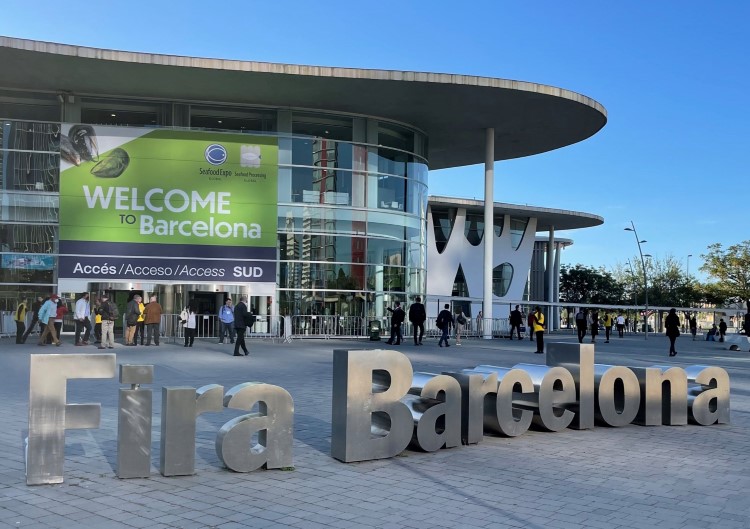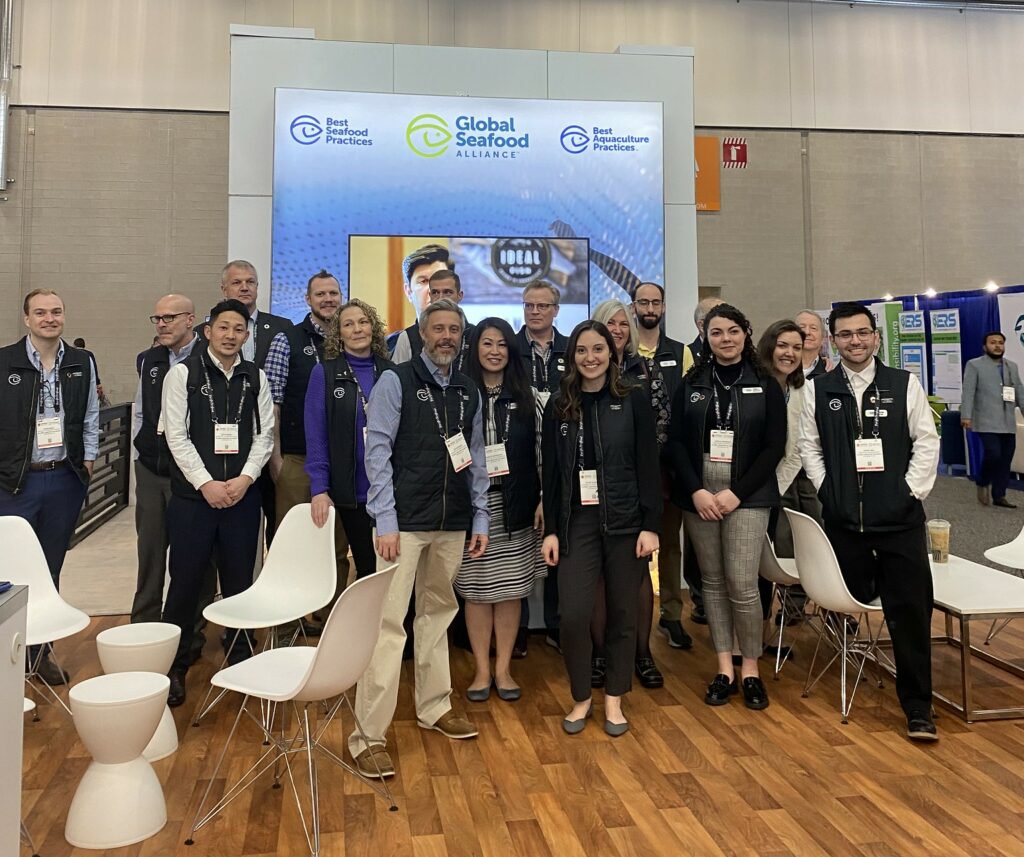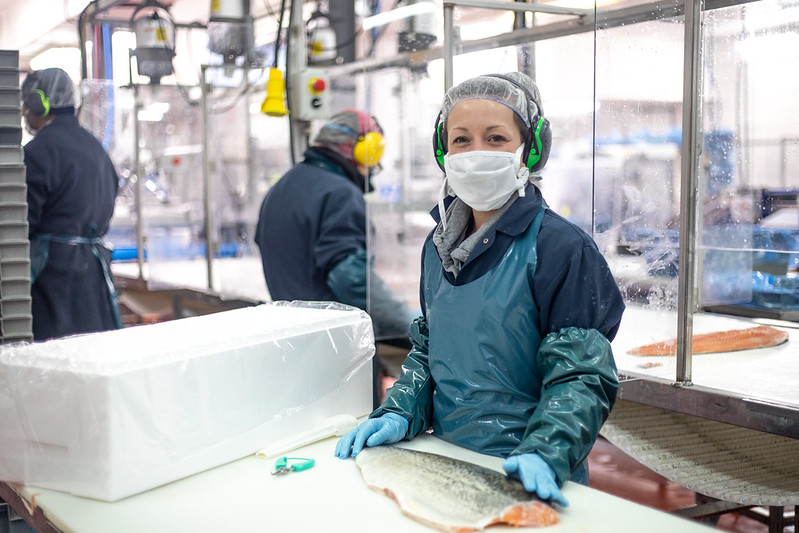GSA Responds to Media Reports of BAP Standard Violations in India’s Shrimp Industry
Note: GSA is keeping its stakeholders up to date on allegations made against shrimp producers in India, including those holding Best Aquaculture Practices (BAP) certificates.
June 19, 2024: GSA Investigation Findings Point to Opportunities to Strengthen Certification and Collaborate with Indian Shrimp Industry Leaders on Continuous Improvement
The Global Seafood Alliance (GSA)’s investigation into allegations made against shrimp producers in India has ended. Results point to internal next steps designed to strengthen the Best Aquaculture Practices (BAP) program, productive collaboration with the Indian producer community to better align assurance offerings with realistic production methods, and increased engagement with and support for longstanding and respectable BAP-certified producers in the region.
Throughout the investigation, GSA aimed to balance assurances of responsible practices with client confidentiality. It is organization policy not to comment on specific companies involved in media reports; rather, GSA incorporates findings into activities that foster both assurance and improvement within the industry. The BAP Producers page remains the most updated resource for facilities currently in the program.
While the investigation focused on evidence and claims made in reports, outcomes are being utilized to help improve BAP offerings for all customers and stakeholders:
- GSA personnel, including members of the Program Integrity team, plan to collaborate with producers before and after the TCRS Shrimp Summit in India later this month to discuss how the BAP program can incorporate or address findings within possible standards updates.
- The investigation resulted in new learnings about pre-processing and the merchant exporter components of the supply chain that some plants in India utilize. A fuller understanding of this dynamic was vital in this investigation, and the findings will allow GSA to create pathways for today’s shrimp processors to operate in their unique environments while adhering to best practices in terms of responsible production.
- GSA plans to work closely with certification bodies and auditors to bolster the audit process.
Separate from the investigation, GSA also took time to meet with and listen to valued BAP-certified Indian producers and influential industry associations. Candid and productive conversations with these members of the BAP program proved beneficial. A main takeaway from this scope of work is that most shrimp processors in India do uphold best practices, and many have worked with GSA through BAP certification for more than a decade. The GSA team supports these companies and will continue to work alongside and highlight those leading by example in India.
“Upholding the integrity of the BAP program and its standards is paramount to the future of GSA, and the continuous improvements resulting from allegations in March of this year have led the organization on a path to a stronger and more resilient program of participants and standards,” said GSA CEO Mike Kocsis.
While this is the final entry in this specific blog series, many future initiatives to be announced on this communications platform will be the direct result of our investigation and commitment to continuous improvement, and we’ll address this connection where applicable.
April 16, 2024: An Update on the Investigation into Allegations Against Shrimp Producers in India
The Global Seafood Alliance (GSA) is currently investigating allegations made against shrimp producers in India and is exploring short-, medium-, and long-term changes to better assess compliance with the organization’s Best Aquaculture Practices (BAP) standards.
Initial investigations into Indian operations highlighted in Outlaw Ocean Project and Hidden Harvest reports have identified the following key elevated assessment areas:
- The prevalence of pre-processing sites across the Indian shrimp industry and how they are captured in audit reports
- Traceability of raw source material
- Worker pay and housing
A representative from the GSA program integrity department recently traveled to India, and the team is collecting evidence using internal sources and existing audit data, as well as aggregating and analyzing all evidence and findings from the external investigations.
GSA is in the process of assessing how different potential improvements could contribute to a more robust program, including but not limited to:
- Determining how best to incorporate genuine worker voice into the BAP program
- Reviewing the way in which star status claims are evaluated in relation to metric tonnage, and potentially changing reporting requirements onsite
- Initiating collaborative efforts with organizations to help improve the overall audit process
- Considering how technology could be utilized in new and different ways to facilitate the audit process
The ongoing investigation is currently focused on a small group of shrimp facilities, and no final conclusions can be shared at this time. GSA welcomes collaboration, including engagement with Indian associations and organizations working to improve the country’s shrimp supply chains. GSA remains committed to its mission of advancing responsible seafood practices through education, advocacy, and third-party assurances, and will provide additional information as it becomes available.
March 26, 2024: Letter from GSA CEO Wally Stevens on India Shrimp Situation
Speaking for everyone at the Global Seafood Alliance who dedicates their passion and experience to bring about positive change in the seafood industry, the recent reports of worker abuses in India’s shrimp supply chain are upsetting.
A vision that we share – one of an industry acting responsibly with regards to its environmental impacts, food safety practices and social accountability – is why many of us chose to work for GSA. It’s also why it hurts so badly for many of us when the results of our efforts are called into question.
My message to the seafood industry today is the same as it is to our employees: Be proud of the work that’s been done and be ready for the work that’s to come. Third-party certification is not an “unmitigated failure, hard stop,” as some claimed last week. There is no question that the global seafood industry is in a better place because of the influence of certification schemes like Best Aquaculture Practices. To call for an end to such an important mechanism is a shortsighted response.
While third-party certification is a meaningful tool for supply chain managers to have greater insights into the types of operations that they source product from, it does have its limitations. Certification, however, was never going to be a miracle cure or a “golden shield” for all that ails us. It remains an effective device for buyers to vet their supply chains and a powerful incentive for aspirational producers everywhere.
When GSA speaks about the need for continual improvement, we don’t only mean the work of seafood producers vying for certification – we hold ourselves to that standard as well. GSA is investigating internal processes, and we are committed to enhancing our standards, wherever and however necessary, and strengthening enforcement efforts wherever possible.
When you disengage from a problem you cede your position to help solve it. GSA will not abandon its vision or its responsibilities in any area of the world where this kind of work is sorely needed simply because the challenge is too great.
Sincerely,
Wally Stevens, CEO
March 21, 2024: GSA Issues Initial Response to Reports of BAP Standard Violations in India
The Global Seafood Alliance is aware of and actively investigating recent allegations being made against shrimp producers in India, including those holding Best Aquaculture Practices (BAP) certificates.
“We are committed to our mission of promoting responsible practices in the seafood supply chain and take these matters seriously,” said Wally Stevens, the CEO of GSA. “BAP requires all certified seafood production facilities – aquaculture farms, hatcheries, feed mills and processing plants – to strictly adhere to robust social accountability, food safety, environmental responsibility, and animal welfare aspects of our global certification standards. Facilities found to have violated BAP standards will have their certifications suspended and potentially revoked.”
Credible evidence of a BAP standard violation initiates an investigation, and the procedure is managed by the GSA Program Integrity department with the involvement of specialized and impartial third-party investigators. This process is currently under way to explore the validity of alleged violations that were reported this week by the Associated Press, The Outlaw Ocean Project, and the Corporate Accountability Lab, and to strengthen procedures to help prevent future violations.
The organization stands behind the integrity of its standards and feels that these requirements have meaningful positive impacts, and is constantly evaluating the depth and breadth of its certification portfolio. GSA welcomes collaboration with other organizations to not only review the allegations in India, but to also develop and implement improvements for certification processes.
BAP standards are maintained under a rigorous internationally recognized process that includes an expert technical committee for standard development, a 60-day public comment period where all comments are reviewed and addressed, and approval by a 12- to 15-member Standards Oversight Committee consisting of one-third academia, one-third industry, and one-third NGO experts. Additional detailed information about the BAP standards can be found here.
Assessments are conducted by accredited third-party certification bodies at least once per year. Facilities must meet all standard criteria and correct all non-conformities before certification is granted. GSA monitors FDA import alerts and news reports and investigates all complaints and allegations to safeguard that auditors, certification bodies, and facilities adhere to program requirements. Severe non-conformities and those that are not resolved within a specified timeframe result in suspension from the BAP program.
GSA and its standards have developed over time to address a variety of issues and areas for improvement. The organization is committed to its mission to advance responsible seafood practices through education, advocacy, and third-party assurances that the world’s leading retailers, foodservice operators, and all seafood consumers deserve.




